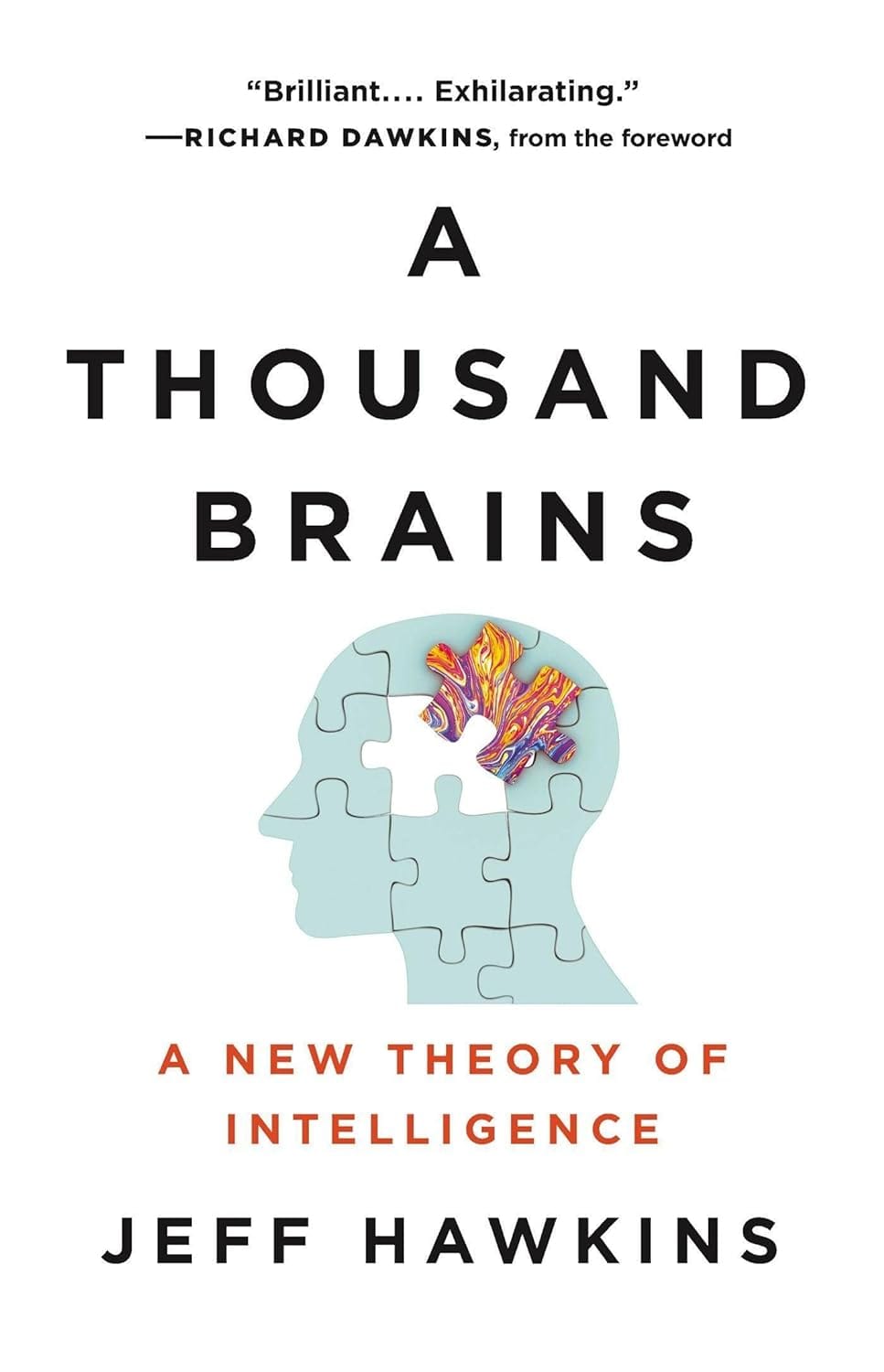A Thousand Brains (Jeff Hawkins) - Book Notes & Highlights

The book explores a theory for how the brain might work according to its author Jeff Hawkins. In the book, Hawkins teaches the reader about what intelligence is and the research that is being done to understand the brain better.
⏳The Book in 3 Sentences
- The neocortex (brain) learns and creates a model of the world around us to enable it to make predictions.
- Humanity’s knowledge is the sum of what we have learned individually.
- We should fear things capable of self-replication, especially viruses and bacteria, as they are existential threats, however intelligence, on its own, is not.
🎨Impressions
This book is about intelligence and the human brain. It simplifies neuroscience to give a more general explanation of intelligence for people without experience in the field. I found the first third of the book quite dull as it mostly explained the basics of neuroscience. I understand the need for these explanations but it made the book quite slow at the start.
I found the later parts of the book more interesting when Hawkins talked about machine intelligence and the future of human intelligence. The book proposes some quite interesting theories on what intelligence and consciousness are. It then presents an argument for why we don't understand how the brain works and why we must. Hawkins has an interesting perspective on machine intelligence that I felt differed from much of what I had read before.
📖Who Should Read It?
I would recommend this book if you are interested in how the brain works and the neurology behind it but don't have a background in neurology. I think this book needs to hit a sweet spot where you find this stuff highly interesting but don't already know that much about it. This balance makes it hard to recommend the book I would say. I believe you will enjoy it if:
- You are interested in neurology and the science of the brain from a neuroscience perspective
- You have an interest in the differences between human and machine intelligence
- You think a lot about long-term problems such as how we can preserve human knowledge after humans go extinct
👩🏫Lessons I Have Learned
How my life / behavior / thoughts / ideas have changed as a result of reading the book.
- One idea that will stick with me from the book is that our brains create a model of the world and is then really good at predicting what will happen next in the world.
- The more I learn about intelligence, both human and artificial the more grateful I am that we exist. Intelligence is deeply complex and the fact that I can write about this book on a computer on the internet is remarkable.
- Even though I thought the neurology part at the beginning was a bit dull I believe it is important to read across a wide number of subjects and I will try to keep reading books that are "outside of my wheelhouse".
📝Summary + Notes
The book is an explanation of human intelligence through modern research in neuroscience done by the author. Human intelligence is then compared and contrasted against the progress in machine intelligence. Jeff Hawkins believes that the LLMs of today and other popular AI tools will not lead to AGI and to do that he believes we would have to create something more similar to the way our brains work.
1. The importance of language
Language is what allows us to effectively communicate with each other and share all the things we discover. Most of our society is built around language and without it this would all be impossible. Language is a fantastic tool that has set up humans for incredible success.
"Language is arguably the most important cognitive ability that distinguishes humans from all other animals. Without the ability to share knowledge and experiences via language, most of modern society would not be possible"
2. The human colossus
One thing that makes humans special is that we are able to share our knowledge with other humans. I refer to the sum of human knowledge as the Human Colossus based on a blog post by Tim Urban over at his blog Wait But Why. We all stand on the shoulders of those that came before us and their knowledge is now our knowledge. The power of language and writing has allowed humans to continually improve upon our knowledge base and this allows you and me to do all kinds of things that used to be "high-tech" and difficult in earlier times.
"Humanity's knowledge is the sum of what we have learned individually"
3. Our brains specialize over time
When we are young our brains have many redundant wirings in our brain, pathways for information and knowledge to travel if we will. Over time this wiring will be made more efficient by removing pathways we don't use and strengthening those that we do. This is a reason why it is often easier to learn things as a child because your brain has not begun to prune your wiring yet.
"When we are born, our neocortex has an overabundance of wiring. This is pared down significantly during the first few years of life. Presumably the brain is learning which connections are useful and which are not based on the early life experiences of the child."
